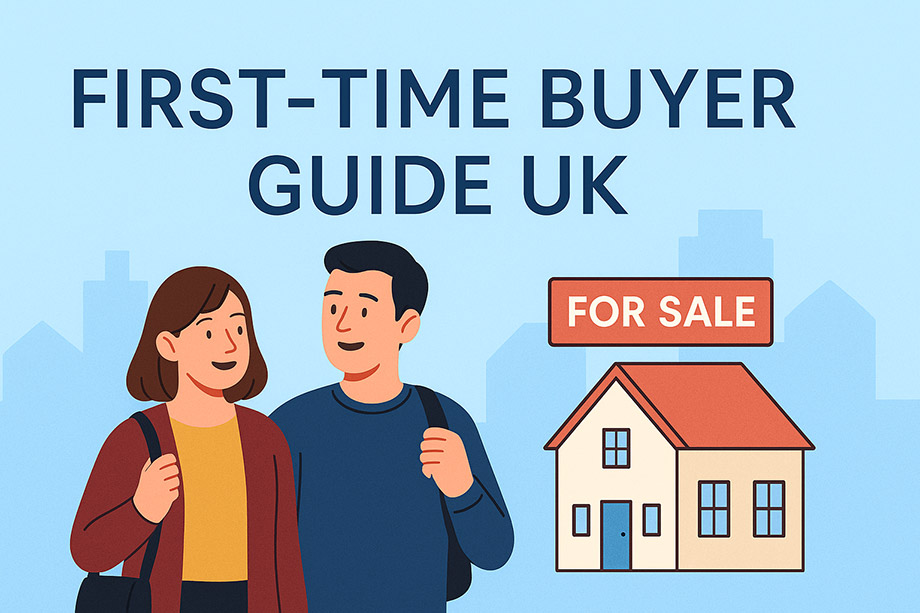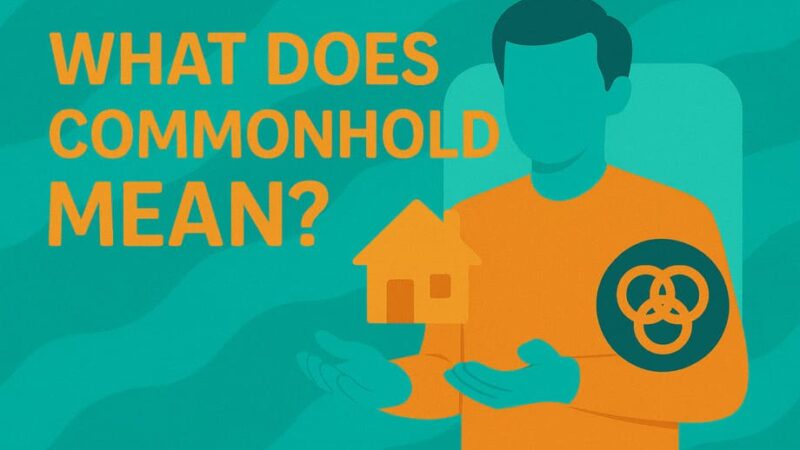First-Time Buyer Guide UK – Everything You Need to Know in 2025

Buying your first home is an exciting milestone — but if you’re a first-time buyer in the UK, the process can also feel overwhelming. From understanding mortgage options to navigating hidden costs, there’s a lot to consider.
This comprehensive First-Time Buyer Guide (UK) will walk you through every step of the journey. Whether you’re just starting to save or are ready to make an offer, this guide will help you buy your first home with confidence.
Table of Contents
What Is a First-Time Buyer in the UK?
A first-time buyer is someone who has never owned a residential property in the UK or abroad. If you’ve never had a mortgage and aren’t named on a property title deed, you likely qualify. This status can open the door to exclusive benefits, such as government-backed schemes, lower deposit requirements, and stamp duty relief.
Step-by-Step Guide for First-Time Buyers in the UK
Here’s a clear, easy-to-follow breakdown of the home-buying process for first-time buyers in the UK.
1. Check Your Affordability
Before you fall in love with a property, figure out how much you can afford. Consider your income, expenses, debt, and how much you’ve saved for a deposit. Use a mortgage calculator to get a rough idea.
2. Save for a Deposit
Most lenders require at least 5% of the property’s value as a deposit. However, a bigger deposit (10–20%) will usually get you a better mortgage deal. First-time buyers often aim for at least £15,000 to £30,000, depending on location.
3. Improve Your Credit Score
A strong credit score helps you access better mortgage rates. Pay off debt, register on the electoral roll, and avoid taking out new loans before applying.
4. Explore First-Time Buyer Schemes
The UK government offers several support schemes:
- Shared Ownership – Buy a share of a home and pay rent on the rest.
- First Homes Scheme – New-build homes sold at a 30–50% discount for key workers and locals.
- Lifetime ISA – Save up to £4,000 per year and get a 25% bonus toward your first home.
5. Get a Mortgage in Principle
A Mortgage in Principle (MIP) is a statement from a lender estimating how much they’re willing to lend. It shows sellers and estate agents that you’re serious and financially viable.
6. Start House Hunting
Browse sites like Rightmove, Zoopla, and OnTheMarket, or register with local estate agents. Be clear about your must-haves, such as location, transport links, and number of bedrooms.
7. Arrange Viewings and Make an Offer
View several properties to compare value. Once you find the right one, make an offer through the estate agent. Be prepared to negotiate.
8. Hire a Solicitor or Conveyancer
You’ll need a legal expert to handle contracts, searches, and the transfer of funds. Get quotes early and choose someone experienced in first-time buyer transactions.
9. Finalise Your Mortgage
After your offer is accepted, submit a full mortgage application. Your lender will conduct a property valuation and may request additional documents.
10. Exchange Contracts and Complete
Once legal checks and mortgage approvals are done, you’ll exchange contracts and pay your deposit. Completion day is when you get the keys and officially become a homeowner.
Pros and Cons of Buying a Home as a First-Time Buyer
Buying your first home is exciting, but it’s important to consider the full picture.
Pros
- Stamp Duty Relief: First-time buyers pay no stamp duty on homes up to £425,000 in England.
- Government Schemes: Access to schemes like First Homes, Shared Ownership, and Lifetime ISAs.
- Investment Potential: Homeownership helps build long-term equity.
- Security: No landlord to evict you or raise rent unexpectedly.
Cons
- Upfront Costs: Deposit, legal fees, surveys, and moving costs add up quickly.
- Maintenance Responsibilities: You’re now responsible for all repairs.
- Mortgage Commitments: A long-term financial obligation, often 25+ years.
- Interest Rate Risk: Mortgage rates can change, affecting your monthly repayments.
Top Tips for First-Time Buyers in the UK
Here are some practical tips to make the process smoother, cheaper, and less stressful:
1. Use a Mortgage Broker
Brokers can access exclusive deals, explain complex terms, and guide you through paperwork — especially helpful if you have unique financial circumstances.
2. Don’t Overstretch Your Budget
Just because you can borrow £250,000 doesn’t mean you should. Factor in council tax, insurance, and utility bills when assessing affordability.
3. Understand Leasehold vs Freehold
If buying a flat, it’s likely leasehold — which comes with ground rent and service charges. Always read the fine print and know what you’re committing to.
4. Ask the Right Questions at Viewings
How old is the boiler? What’s included in the sale? How much are the monthly bills? The more you know upfront, the fewer surprises later.
5. Budget for Additional Costs
Plan for:
- Conveyancing (£800–£1,500)
- Surveys (£400–£1,000)
- Removal services (£300–£600)
- Mortgage arrangement fees (£0–£1,000)
6. Get a Survey
A home survey highlights potential issues like damp, structural movement, or roof repairs. Even for new builds, a basic HomeBuyer Report is worth the cost.
7. Be Patient
Property chains, mortgage delays, and legal back-and-forth can slow things down. Average timelines are 8–14 weeks, so prepare for delays.
Buying your first home in the UK can be both thrilling and nerve-wracking — but you don’t have to go it alone. With the right knowledge, preparation, and support, you can make confident, informed decisions throughout the process.
From saving for a deposit to navigating mortgages and legal steps, this first-time buyer guide UK is your roadmap to property ownership in 2025 and beyond.
Last Updated on July 29, 2025 by James Cartwright







